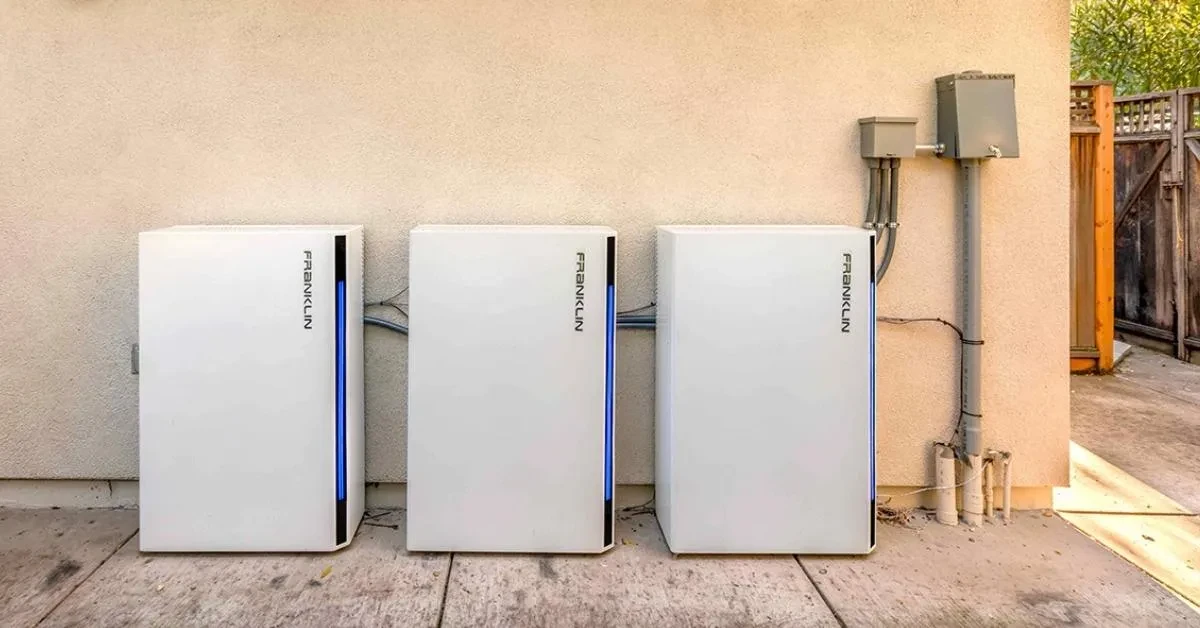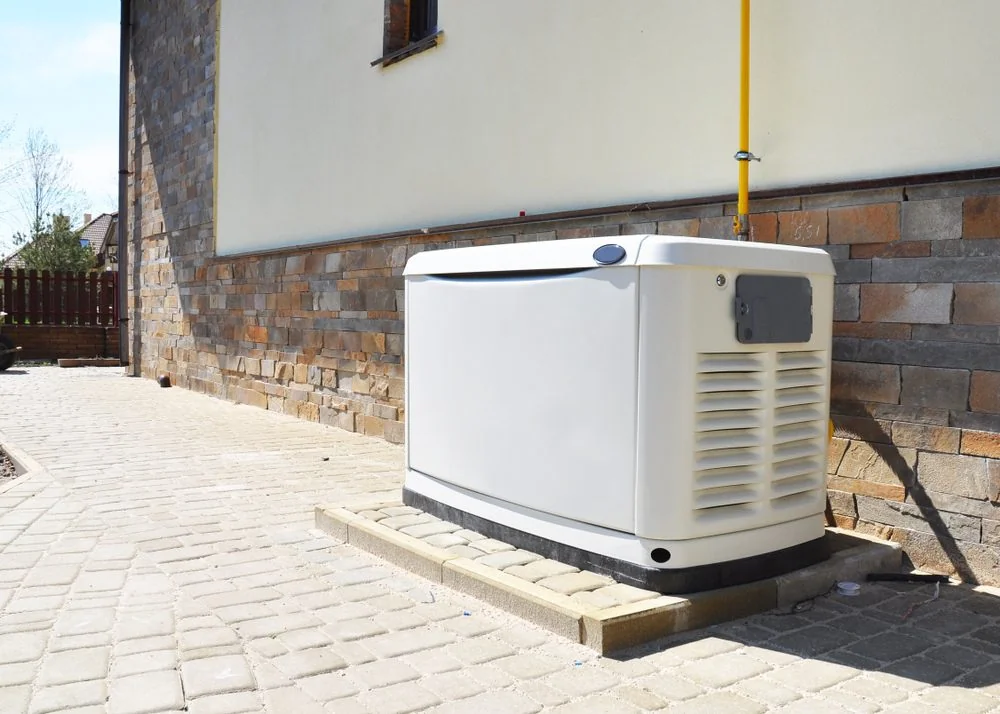Navigating Emergency Power Solutions: Your Ultimate Decision Framework
The debate between battery backup vs generator systems has intensified as homeowners seek reliable solutions for increasingly frequent power outages. With extreme weather events and aging electrical infrastructure causing more frequent utility interruptions, the question isn’t whether you need backup power, but which technology best serves your specific situation.
Understanding the nuances of battery backup vs generator selection requires examining how each technology integrates with modern lifestyle demands and energy management goals. Today’s smart homeowners consider factors beyond basic power provision, including environmental sustainability, noise pollution, and integration with renewable energy systems when making backup power decisions.
Battery Backup Systems: Modern Energy Storage Solutions

Advanced Lithium-Ion Technology Benefits
Contemporary battery backup systems leverage cutting-edge lithium-ion technology that delivers exceptional performance compared to traditional backup power methods. These sophisticated energy storage solutions provide clean, reliable electricity without the mechanical complexity associated with conventional generator systems.
When evaluating battery backup vs generator options, modern battery systems offer remarkable advantages in terms of response speed and power quality. Instantaneous activation ensures zero downtime for critical devices, while advanced battery management systems optimize performance and extend operational lifespan through intelligent charging algorithms.
Modular Design and Scalability Features
Modern battery backup systems feature modular architectures that allow homeowners to customize capacity based on specific energy requirements. This scalable approach enables incremental expansion as power needs evolve, providing flexibility unavailable in traditional backup power solutions.
The modular design philosophy distinguishes battery backup vs generator comparisons by offering tailored solutions rather than one-size-fits-all approaches. Homeowners can start with basic essential circuit protection and expand to whole-home coverage as budget and requirements dictate.
Smart Home Integration Capabilities
Battery backup systems excel in smart home environments through seamless integration with home automation platforms and energy management systems. These intelligent storage solutions communicate with smart thermostats, lighting controls, and appliance management systems to optimize energy consumption during outage events.
An advanced battery backup vs. generator analysis reveals superior compatibility with smart home technologies, renewable energy integration, and grid-interactive features that provide value beyond emergency backup power applications.
Generator Systems: Proven Mechanical Power Solutions

Engine-Driven Reliability and Performance
Generator systems utilize proven internal combustion engine technology to provide dependable backup power through mechanical energy conversion. These robust systems have powered homes and businesses reliably for decades, establishing a track record of performance in diverse operating conditions.
The mechanical simplicity of generator operation offers advantages in battery backup vs generator evaluations, particularly for applications requiring high power output over extended periods. Generator systems can operate continuously as long as fuel supply remains available, providing unlimited runtime capability.
Fuel Flexibility and Availability Options
Generators accommodate various fuel types including natural gas, liquid propane, diesel fuel, and gasoline, providing flexibility for different installation scenarios and fuel availability situations. Natural gas units connect to existing utility infrastructure, while propane systems offer independence from utility services.
This fuel versatility creates advantages in battery backup vs generator comparisons for areas with reliable fuel infrastructure or where homeowners prefer specific fuel types for operational or economic reasons.
High-Capacity Power Generation
Large standby generators deliver substantial power output capable of supporting entire household electrical loads simultaneously. These high-capacity systems can power air conditioning, electric heating, major appliances, and lighting systems without the load management requirements of battery backup alternatives.
The unlimited power generation capacity represents a significant consideration in battery backup vs generator evaluations for homes with substantial energy requirements or resistance to lifestyle modifications during outages.
Operational Characteristics: How Systems Perform
Startup Behavior and Power Delivery
Battery backup systems provide instantaneous power delivery with seamless transition that prevents any interruption to connected devices. This immediate response protects sensitive electronics and maintains continuous operation of medical equipment, security systems, and communication devices.
Generator systems require startup time ranging from seconds to minutes depending on system type and configuration. While automatic transfer switches minimize interruption duration, generators cannot match the instant response characteristics of battery backup systems in battery backup vs generator performance comparisons.
Runtime Capabilities and Energy Management
Battery backup systems offer finite runtime determined by stored energy capacity and connected load requirements. Strategic energy management through load prioritization and automated switching extends available runtime while maintaining power for essential systems.
Generators provide virtually unlimited runtime with adequate fuel supply, making them suitable for extended outages lasting days or weeks. This endurance advantage influences battery backup vs generator decisions for areas prone to prolonged utility interruptions.
Environmental Performance and Efficiency
Battery backup systems operate with exceptional efficiency rates exceeding 95% in modern lithium-ion implementations. Silent operation and zero emissions during use make battery systems ideal for noise-sensitive environments and environmentally conscious applications.
Generators produce mechanical noise and exhaust emissions requiring proper ventilation and consideration of neighbor proximity. Modern generator systems meet strict emissions standards but cannot eliminate environmental impact during operation.
Technical Installation Requirements
Electrical Integration Complexity
Battery backup installation involves integrating and configuring the electrical panel with automatic transfer switching to seamlessly manage both utility and backup power sources. Professional installation ensures proper electrical connections and compliance with local electrical codes.
The electrical integration process for battery backup vs generator systems typically favors battery installations due to simpler requirements and fewer regulatory restrictions. Battery systems require less extensive modifications to existing electrical infrastructure.
Physical Space and Location Considerations
Compact battery backup systems are installed in minimal space requirements, often within existing utility areas or garage locations. Modern designs accommodate various installation environments without extensive structural modifications or dedicated equipment rooms.
Generator installations require outdoor placement with adequate clearances for ventilation, service access, and noise considerations. Permanent standby generators need concrete pads, weather protection, and compliance with setback requirements that may limit installation options.
Utility Connections and Permitting
Battery backup systems typically require standard electrical permits, which have straightforward approval processes. Integration with existing electrical service involves minimal utility coordination beyond standard electrical work notifications.
Generator installations often require additional permits for fuel connections, exhaust systems, and noise compliance. Natural gas generators require utility coordination for new service connections or capacity upgrades, which can extend installation timelines.
Maintenance Philosophy and Requirements
Battery System Maintenance Approach
Battery backup systems adhere to a minimal maintenance philosophy, with solid-state operation requiring only periodic system health monitoring and eventual battery replacement after years of service. Advanced battery management systems provide predictive maintenance alerts and performance optimization.
The low-maintenance characteristics of battery backup vs generator systems appeal to homeowners seeking reliable backup power without ongoing service obligations or technical expertise requirements.
Generator Maintenance Protocols
Generator systems require regular maintenance schedules, including engine oil changes, air filter replacement, spark plug service, and periodic exercise cycles to maintain operational readiness. Professional maintenance ensures reliable operation and warranty compliance.
Generator maintenance represents an ongoing operational responsibility that factors significantly into battery backup vs generator total ownership considerations. Regular service maintains performance but requires scheduling and expense planning.
Long-Term Reliability Factors
Battery backup systems achieve long-term reliability through advanced battery chemistry and thermal management systems that optimize performance over thousands of charge cycles. Quality lithium-ion batteries provide 10-15 years of service with minimal capacity degradation.
Generator reliability depends on regular maintenance, quality fuel, and proper operation. Well-maintained generators can provide decades of service, but their reliability is directly correlated with consistent maintenance and well-planned component replacement schedules.
Economic Considerations and Value Analysis
Investment Strategy Differences
Battery backup systems represent technology investments with higher upfront expenditure but minimal ongoing operational expenses. The investment approach emphasizes long-term value through reduced maintenance, silent operation, and smart home integration capabilities.
Generator systems typically offer a lower initial investment, along with ongoing operational expenses for fuel, maintenance, and periodic repairs. The economic model favors immediate affordability with distributed costs over the system’s operational life.
Lifecycle Value Assessment
A comprehensive economic analysis of battery backup versus generator must consider total lifecycle costs, including purchase price, installation, maintenance, fuel, and replacement expenses over the expected service life.
Battery systems often demonstrate superior lifecycle value in applications with moderate power requirements and frequent short-duration outages, while generators may provide better value for high-power applications and extended outage scenarios.
Technology Evolution and Future Trends
Battery Technology Advancement Trajectory
Rapid battery technology evolution continues to improve energy density, reduce costs, and extend service life. Emerging technologies including solid-state batteries and improved thermal management promise even better performance for future battery backup applications.
The accelerating pace of battery innovation influences battery backup vs generator decisions by suggesting continued improvement in battery system capabilities and cost-effectiveness over time.
Renewable Energy Integration Potential
Battery backup systems integrate seamlessly with solar panel installations and other renewable energy sources, creating comprehensive energy management solutions that provide backup power while supporting sustainable energy goals.
This renewable integration capability adds significant value beyond emergency backup power, enabling energy independence and grid services participation that generators cannot provide.
Environmental Impact and Sustainability
Carbon Footprint Considerations
Battery backup systems operated with renewable energy sources achieve minimal carbon footprint and support sustainability objectives. Grid charging during off-peak hours can utilize cleaner energy sources and reduce environmental impact.
Generator systems produce direct emissions during operation, though modern units achieve significant efficiency improvements and emissions reductions compared to older technologies.
Noise Pollution Management
Silent battery backup operation eliminates noise pollution concerns and neighbor consideration issues common with generator installations. This characteristic provides significant advantages in urban and suburban environments.
Professional Consultation and Decision Support
Expert Assessment Value
Professional electrical consultation provides invaluable guidance for battery backup vs generator decisions through detailed load analysis, site evaluation, and technology recommendation based on specific requirements and priorities.
Qualified professionals can identify optimal solutions that balance performance requirements, budget constraints, and long-term objectives while ensuring proper installation and code compliance.
Customized Solution Development
Every home presents unique requirements that influence optimal backup power solutions. Professional assessment considers electrical loads, outage patterns, budget parameters, and lifestyle preferences to recommend ideal battery backup vs generator configurations.
Conclusion
The choice between battery backup vs generator systems requires careful evaluation of individual needs, priorities, and circumstances. Battery backup excels in applications requiring clean power, silent operation, and smart home integration, while generators provide cost-effective high-capacity solutions for extended outages.
Modern technology continues to improve both battery backup and generator options, creating viable solutions for diverse applications and requirements. Success depends on matching technology capabilities with specific needs through thorough analysis and professional guidance.
Expert Power Solution Guidance
Need help choosing between battery backup vs generator systems for your home? When you require professional consultation on emergency power solutions, expert installation services, or comprehensive electrical system evaluation, trust the experienced electrician in Norman at Tri-L Electric. Contact us today for personalized power solution recommendations tailored to your specific needs.
